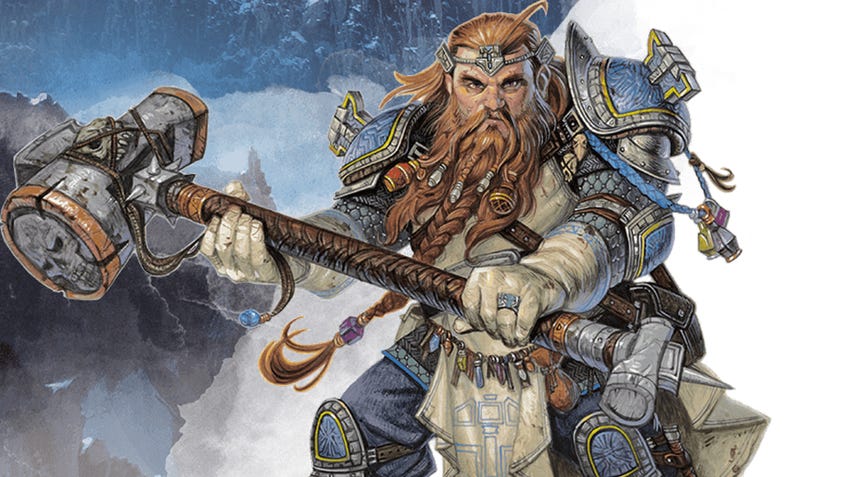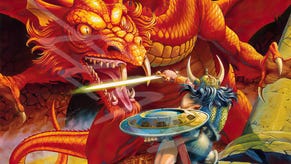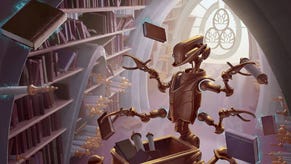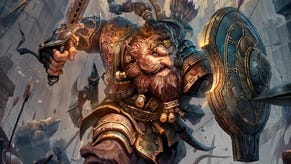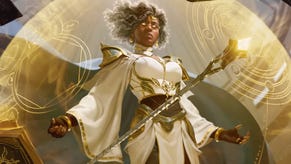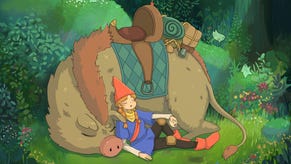Dungeons & Dragons 5E cleric class explained
Kit out your warrior of faith with the right spells and equipment to make them a D&D powerhouse.
Clerics are best known for being the designated healers of Dungeons & Dragons 5E. Which is actually a little limiting, when you consider that they’re one of the most versatile classes in the tabletop RPG thanks to the variety of spells they can learn and equipment they can use. Whilst clerics certainly have plenty of potential for playing a supporting role in a party, they can also be equally as offensively capable as other spellcasting classes such as sorcerers or warlocks - it entirely depends on what kind of cleric you want to create.
Whereas other magic-focused classes in D&D 5E rely upon aspects such as their ancestry or a deal they’ve made with a shifty otherworldly being, clerics derive their power from faith itself. The cleric’s relationship with their deity of choice isn’t like that of a warlock’s bond with their patron, it’s a more spiritually deep connection that can be affected by things such as doubt or a lack of belief. How these powers manifest is determined by which divine domain the cleric’s god of choice rules over, which can vary from the more cerebral aspects of knowledge and trickery to more physical elements like war or life itself.
Dungeons & Dragons 5E cleric class guide
- Cleric starting proficiencies and equipment
- How do clerics cast spells?
- How do you prepare spells and what is ritual casting?
- Can clerics be evil?
- What is Channel Divinity?
- Which Divine Domain should you choose?
- What’s the best race for a cleric in D&D 5E?
Unlike other Dungeons & Dragons spellcasters like wizards, clerics can take a bit of a beating and know their way around a weapon. Whereas Paladins are the most weapon-proficient spellcasting class out there - at least within the core collection of D&D 5E classes - clerics can still get stuck into the more physical side of battle.
This is partly what makes the cleric such a great class to have in your party, because you won’t necessarily have to worry about whether they’re going to be squished whenever your back is turned. But then again, their offensive and defensive capabilities depend upon what kind of cleric you want to make - so, let’s get stuck into it then!
Cleric starting proficiencies and equipment
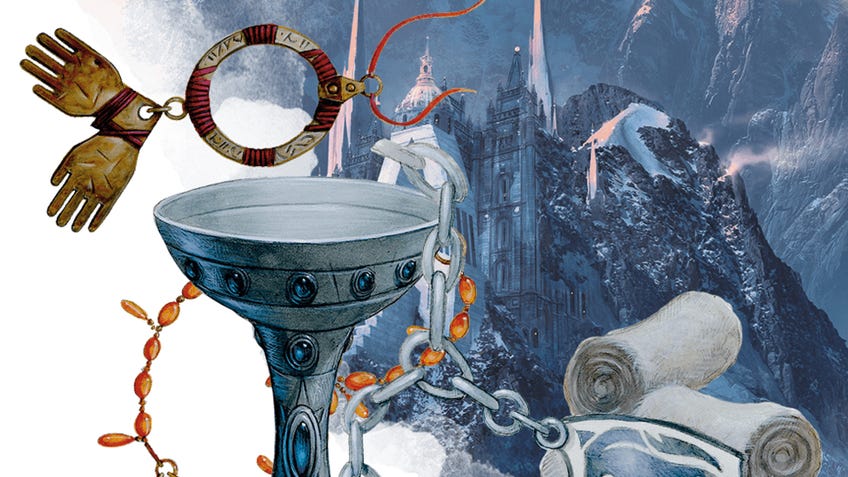
From the get go, clerics have the ability to use a lot of different types of equipment, both offensive and defensive. They’re automatically able to use both light and medium armour, as well as any simple weapons - which includes both melee and ranged weaponry. The two skills you choose will be driven by the type of character you’re looking to make. Clerics don’t tend to acquire many skills later on, so the two proficiencies you pick here are going to be important. In other words, choose wisely from the list within the Player’s Handbook.
If you were thinking of creating a cleric who’s capable of leading people through strength of character and the ability to connect with others, then consider taking insight and persuasion. Alternatively, you might want your cleric to be a learned scholar who is able to use their knowledge to guide themselves and others - which means you should take proficiency in history and religion. Considering elements beyond just character build, such as the kind of person your cleric is and their background, can also help you to make up your mind.
However, an arguably more important decision here is what equipment you’re going to outfit your cleric in. Unlike a lot of other spellcasting classes, clerics have access to an impressively large selection of equipment - there aren’t a lot of either/ors here, you just get stuff. The heaviest choice is going to be what type of armour and weapon your cleric is going to use, as it will determine whether they’ll be more suitable for sideline combat or getting into the thick of it. Obviously choosing light armour will make your cleric less protected, but it will make them more agile - so a better choice for a character that focuses more on long-range spellcasting. Whilst medium armour will enable your cleric to get closer to their enemies without getting immediately knocked out.
As for the weaponry choices, it really depends on one, whether you’d like your cleric to use a melee weapon and two, if that weapon is going to be a mace or warhammer, as those are the potential starting options. If the answer to both is yes, then you’ll also be able to get your cleric a crossbow as well. If the answer to the second is no, then you’re going to have to sacrifice that crossbow for a simple weapon of your choice. Choosing between the two pack options will be decided by how into the roleplay of being a cleric you are. For more character potential, pick the Priest’s Pack, otherwise just take the Explorer’s Pack for practicality’s sake.
How do clerics cast spells?
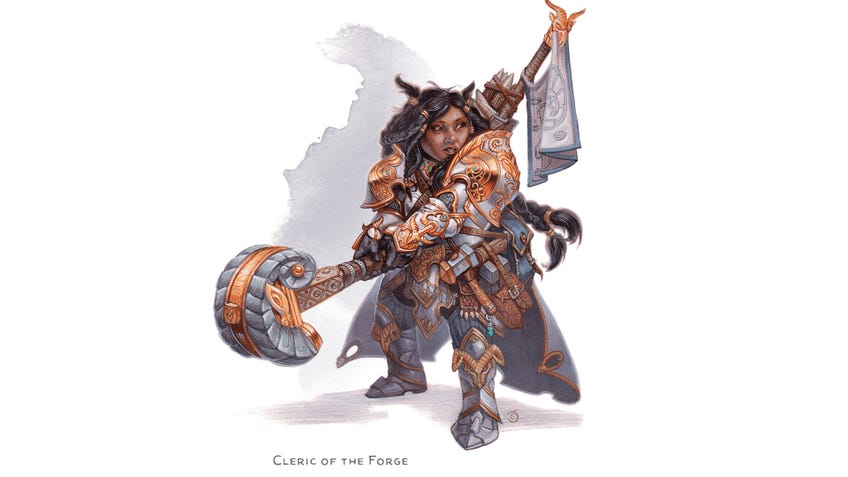
Clerics call upon the power of their chosen deity to cast spells - which is why certain types of clerics will gain certain types of abilities. Most clerics use wisdom as their main spellcasting modifier - with charisma sometimes coming into the mix - meaning that it’s advisable to put more points into this particular stat than others.
You can determine your spell DC, which is what your targets need to roll against to save against some of the effects of your spells, by adding eight to your proficiency modifier - which you can work out using our guide to the basics of D&D 5E - and your wisdom modifier, which is dependent on high your wisdom score is.
In order to apply the effects of a spell, your character needs to be able to hit their chosen target. Your cleric’s spell accuracy is determined by their spell attack modifier, which is the number you add to your attack rolls when casting a spell. To work out your character’s spell attack modifier, add your character’s proficiency bonus plus their wisdom modifier together. This is primarily why having a good wisdom ability score is an important factor to consider making a cleric.
How do you prepare spells and what is ritual casting?
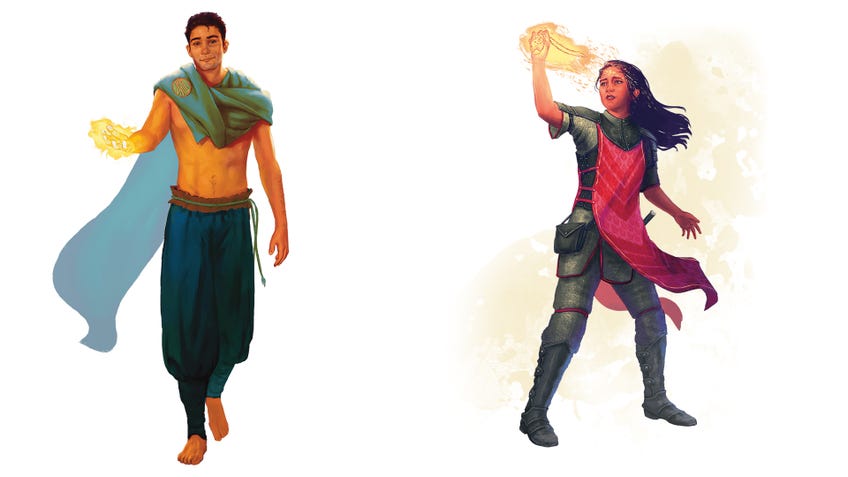
Whilst some spellcasting classes in D&D 5E are limited to only casting a set selection of spells that they’ve learnt, clerics aren’t restricted in the same way. Instead, clerics are theoretically capable of learning any spell on the list of D&D 5E cleric spells - at any time - as long as they have the spell slots for them. Essentially, whilst other classes might have to wait until they’ve leveled-up to change what spells they’re able to cast, clerics can change their current spell list after every long rest thanks to the fact that they can prepare spells.
Whenever your cleric takes a long rest, they can switch out their current list of spells with any of those included on the cleric spell list, as long as they have the spell slots to cast them - i.e. you can’t cast a higher level spell via a lower level spell-slot. Clerics can take as many spells as equal to their wisdom modifier plus their current cleric level and are not restricted to the spells attached to their deity’s chosen domain - which grants them a lot of freedom.
On top of this, clerics are capable of casting ritual spells. Ritual spells do not require a spell-slot to be cast, meaning that your character can still cast spells even if they’re fresh out of spell slots with no long-rest in sight. However, only certain types of spells can be cast this way - check for the ritual tag when picking your spells from the cleric list - and they take 10 minutes to be cast. Essentially, don’t attempt to cast a ritual spell during combat - as you’ll never finish it in time - but keep them for the quieter moments when you have an extra 10 minutes to spare.
Can clerics be evil?
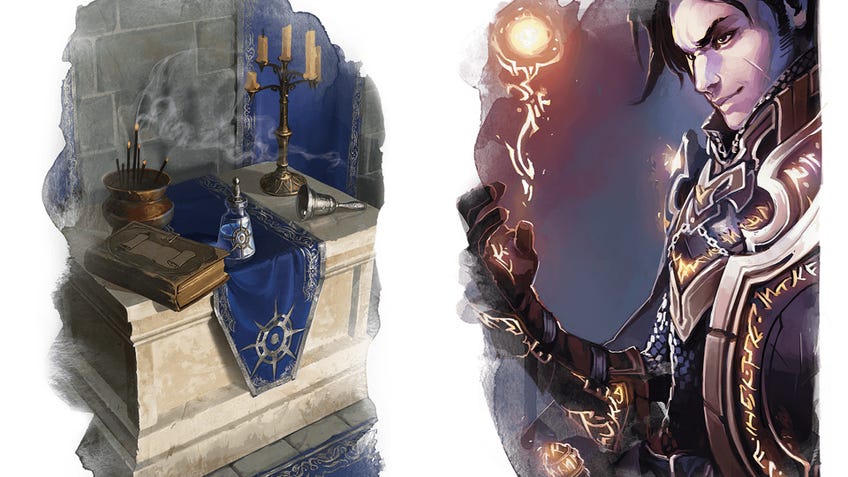
It’s a common misconception that classes such as clerics and Paladins - the types that get their powers from worship and oaths - are all goody two-shoes. On the contrary, clerics can walk a very dark path, as long as they have the right deity to guide them along the way. Gods in the world of Dungeons & Dragons can range greatly in morality, from being entirely benevolent to being outright evil. How you decide to interpret your chosen deity is entirely up to you, but pages 293 to 299 of the 5E Player’s Handbook provide a useful overview of the potential gods you can pick from and what their assigned moral alignment is.
The moral alignment system is a long-standing element of the Dungeons & Dragons series. Whilst certain aspects of the RPG system still use it - such as certain spells - it’s a decidedly more restrictive and dated aspect of the game. It’s really up to you whether you want to use it to define your chosen deity and, subsequently, your cleric. From Bane, God of Tyranny and the main antagonist of the Baldur’s Gate video game franchise, to Myrkul - the God of Death - there are plenty of evil gods to choose from if you want to use the moral alignment system.
Otherwise, why not have a browse of Appendix B in the Player’s Handbook to see what kind of gods your cleric could worship. Potential deities include those of the Forgotten Realms, other sourcebook locations like Ebberon and Dragonlance, and even deities inspired by real-world paganistic religions - such as Zeus, Anubis and Loki. The gods’ assigned domains will also be listed next to their names, alignments and symbols, to give you a better idea of what they have to offer.
What is Channel Divinity?
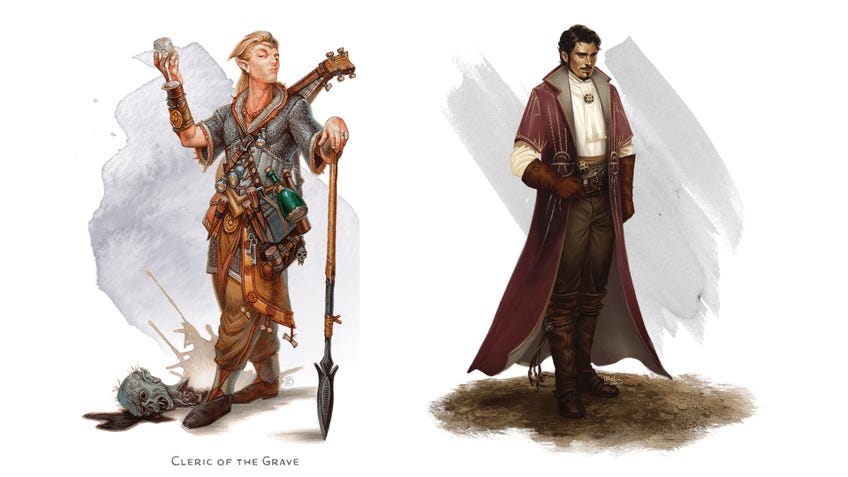
Channel Divinity is the signature cleric move. It’s the main thing the class is known for - besides healing - and it’s greatly affected by which domain your chosen god is part of.
Regardless of which domain your cleric focuses on, they’ll always be able to use the Channel Divinity ability Turn Undead. This ability enables your cleric to force undead creatures to move away from them or otherwise force them to take damage. If they fail a wisdom saving throw against your cleric’s spell DC, any undead within a 30ft radius must move away from them for an entire minute. This eventually turns into the Destroy Undead ability, which has the potential to immediately eliminate undead creatures of a certain challenge rating - depending on your cleric’s current level.
All clerics also gain the Divine Intervention ability at 10th level, which allows them to attempt to call upon their deity to provide great aid. Once players have described what they want to happen if they succeed, they roll a percentile dice - that’s a d100 - and try to equal or get under their current cleric level. At 20th level, this roll automatically succeeds. With success, the Dungeon Master decides how this Divine Intervention materialises - using the player’s description and their god’s domain.
Which Divine Domain should you choose?
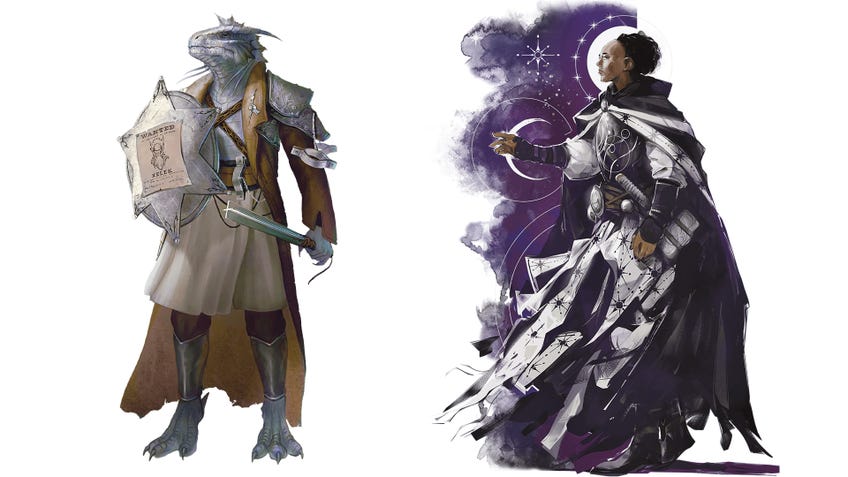
In Dungeons & Dragons each deity is categorised into a certain Divine Domain, which determines what kind of abilities clerics worshipping those gods will gain as they level up. Whilst clerics aren’t restricted to casting the spells associated with their god’s domain, the spell list included with each domain gives guidance on what kind of spells work for a cleric of that domain. However, abilities are restricted to clerics worshipping gods of that domain.
Your choice of deity should be greatly influenced by their domain, so have a look at your options in the Player’s Handbook - we’re not going into those Divine Domains featured in other sourcebooks and homebrew supplements in the interest of keeping things as simple as possible - and see where your heart takes you.
Knowledge
Clerics who worship the gods of knowledge are obviously big brain-boxes who thrive on discovering hidden secrets and helping guide their party towards their goal. Suggested spells centre around enemy control - such as Command and Suggestion - and their abilities include being able to learn languages instantly, reading people’s thoughts and even looking into the past to seek answers.
Life
The most well known of the cleric Divine Domains, the Life Domain is all about - you guessed it! - keeping those fools you call party members alive and kicking. Suggested spells focus on topping up allies’ health, giving their saving rolls a boost and even bringing them back from the dead, whilst the Life Domain abilities help to enhance healing magic - gifting your cleric with the ability to heal themselves and others at the same time and eventually healing using d12s.
Light
Think of this Divine Domain as being, quite literally, the ability to channel a major source of light - that being fire. Clerics of the Light Domain often use spells that set their enemies ablaze, bring light to a dark place and even use light to see through the eyes of others. The abilities of a Light Domain cleric help prevent them from being hit by incoming attacks, inflict radiant damage on their enemies and make them particularly vulnerable to fire damage - great against the undead.
Nature
These clerics harness the powers of the natural world in order to do their bidding, more specifically, those of the animal and plant kind. Suggested spells centre around making friends with the local wildlife, attacking opponents with aggressive plantlife and even being able to teleport across long-distances using trees. Expect to tap into abilities that help your cleric gain animal buddies, protect your allies against certain types of elemental damage and eventually gain them an army of creatures to command at their will.
Tempest
If you want to create a cleric who walks in the footsteps of the likes of Thor, then the Tempest Domain is the one to choose. Not only do the suggested spells feature a lot of lightning-summoning - alongside the ability to control water and use waves to devastate enemies - but clerics of this domain can also push advancing enemies back whenever they do said lightning damage and they can even fly, which is pretty damn cool.
Trickery
Clerics might not be as dedicated to the art of stealth as the rogue class, but they can be sneaky if they want to be. Clerics of the Trickery Domain specialise in bamboozling their enemies and enhancing their allies’ ability to be as quiet as a mouse. Suggested spells for clerics of this domain focus on manipulating and deceiving others, being able to quickly get from one place to another and even turning themselves into another being entirely. The abilities of the Trickery Domain aid your cleric in avoiding both damage and unwanted notice.
War
This one is pretty straightforward - it’s all about enhancing the art of martial combat. If you’re looking to create a cleric who’s more than capable of smashing a few heads in, then this is surely the Divine Domain you want for them. The suggested spells of this domain mostly enable clerics to protect themselves and their allies from attacks, as well as summon spiritual attackers and help them to move around the battlefield a bit easier. Abilities of the War Domain focus on allowing your cleric to perform additional attacks, improve accuracy and give their allies resistance to physical damage.
What’s the best race for a cleric in D&D 5E?
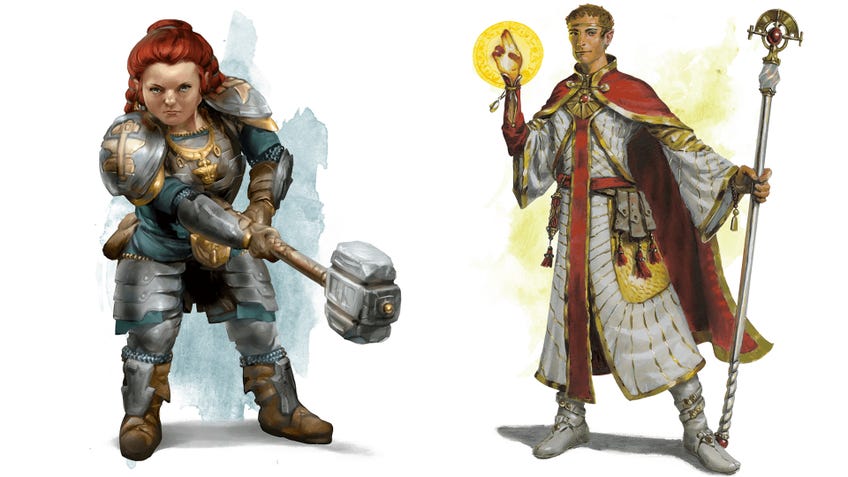
As is the case with a lot of stuff when creating a character in Dungeons & Dragons 5E, there’s no definitive ‘right’ answer to this question. There are certainly some aspects of each D&D species that may sway you into choosing them over others when it comes to creating a cleric, but your personal preferences are more important than potentially maximising your character’s build. If numbers are the most important thing to you, then some choices are better than others. However, think carefully about your character’s personality and backstory as well, because these things are important to roleplaying.
Hill Dwarves are a solid pick if you’re looking for a cleric who is more accomplished at casting spells as they get a plus-one bonus to their wisdom score. They also gain a hit point with every level, thereby making them solid enough to take a few more hits - so potentially a good choice for a War or Tempest cleric? Mountain Dwarves are an equally good pick for this type of cleric as they get a plus-two bonus to their strength score.
Alternatively, Wood Elves - who also get a plus-one bonus to their wisdom score - provide a more subtle kind of cleric who is able to handle a good selection of weapons, such as longswords and longbows, and can use their Mask of the Wind ability to keep out of sight in natural environments.
Half-elves are another good pick for making a cleric as they get a bonus to their charisma score, which can come into play with cleric spell-casting, as well as a bonus to another score of their choice. The species’ Fey Ancestry grants them some protection against being charmed, meaning that Half-elf clerics are unlikely to suddenly turn on their allies.
